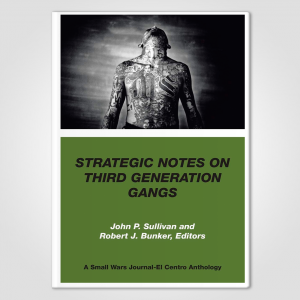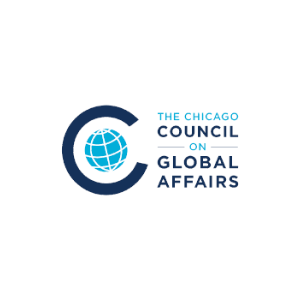
World Bank needs to make fragility a central priority in the COVID-19 era
The COVID-19 pandemic is painfully exposing the world’s many interconnected fragilities

The COVID-19 pandemic is painfully exposing the world’s many interconnected fragilities

The pandemic has turned the world outside our doorsteps into a newly formed wilderness. Public spaces are now areas to be ventured into sparingly, except by essential workers, so for most of us our worlds have shrunk to the size of our homes.

Latin America is going digital, with all the upsides and downsides that this transformation entails

Published in World Economic Forum By Robert Muggah In every crisis it is the poor, sick, disabled, homeless and displaced who suffer the most. The COVID-19 pandemic is no exception. Migrants and refugees, people who shed one life in search for another, are among the

The world is entering a volatile and unstable new phase.

The COVID-19 pandemic brought the world’s bustling cities to a screeching halt. The outbreak has revealed how urban centers are the front and last lines of defense against infectious disease outbreaks. They are also the key to leading national and global recovery.

Published in New Europe By Robert Muggah Our cities will not be the same after COVID-19. Nor should they be. In Italy, as elsewhere, the public-health crisis has put us on the defensive. Our hospitals have been inadequate. And our cities, having been planned to

Se líderes políticos e grandes empresas tomarem as melhores decisões, as cidades podem sair melhores do que entraram na pandemia

O mundo está em convulsão pelo novo coronavírus, mas esse não é o único patógeno que nos afeta. A violência criminal também é endêmica, contagiosa e altamente virulenta.

Published in Foreign Policy By Robert Muggah The world is convulsed by the novel coronavirus, but that is not the only pathogen that afflicts us. Criminal violence is also endemic, contagious, and highly virulent. More than 464,000 people were killed in homicides in 2017 (the last

Strategic Notes on Third Generation Gangs builds upon the third generation street gang (3Gen Gang) theory first articulated in a series of papers by John P. Sullivan in 1997.

To understand more about the crisis confronting the urban poor, The New Humanitarian interviewed Robert Muggah, principal of The SecDev Group and co-founder of the Igarapé Institute,

As coronavirus gales across the Americas, officials from Mexico to Chile have puzzled over how to keep millions locked down at home

Published in Financial Times By Robert Muggah With president Jair Bolsonaro dismissing the pandemic as “sniffles” and criticising regional lockdown measures, the country’s drug gangs and paramilitary groups have stepped in to enforce social distancing to combat the spread of coronavirus. “Whoever is caught on

Publicado em France 24 Por Robert Muggah O diretor de pesquisa do Instituto Igarapé Robert Muggah concedeu ao canal FRANCE 24 uma entrevista sobre o assunto. Assista:

Published in Washington Post By Robert Muggah Hundreds of thousands of people around the world are jailed in crammed cells under unsanitary conditions, fertile ground for the spread of the coronavirus, but many governments have yet to adopt measures that could prevent the pandemic from

Published in Bloomberg By Robert Muggah At midnight on March 17, Paraguay closed down the Friendship Bridge to Brazil. It was the first time in more than half a century that traffic stopped on the emblematic land link between the two South American neighbors, where

With COVID-19 infections now evident in 176 countries, the pandemic is the most significant threat to humanity since the second world war. Then, as now, confidence in international cooperation and institutions plumbed new lows.

Far from merely reflecting an unequal distribution of economic means, rising inequality comes with a broad range of additional toxic side effects, many of which the COVID-19 pandemic has thrown into sharp relief. With the pandemic transforming life around the world before our eyes, this is a problem that can no longer be ignored.

Publicado em Folha de S. Paulo Por Robert Muggah. Traduzido por Sergio Schargel. A Covid-19 será devastadora em comunidades e países de renda baixa e média, e o enfrentamento à pandemia e à recessão econômica demanda uma resposta global contundente que envolva governos nacionais, cidades e a sociedade civil.

Published in Reuters By Robert Muggah Liliana was there when local men abducted her teenage friend on the outskirts of El Salvador’s capital, and she saw exactly who did it. But when police came to question her, she kept quiet. Her family, who were living

Publicado em GQ Por Robbert Muggah Simpósio da Singularity University esta semana reuniu especialistas em debates variados sobre o assunto. Em casos como o que estamos vivendo, se informar nunca é demais. Se por um lado órgãos e instituições tem deixado claro um arcabouço de

Published in Project Syndicate By Robert Muggah The COVID-19 pandemic was not just predictable but inevitable, which makes the skyrocketing economic and human costs of the crisis all the more unacceptable. If the international community does not respond by creating new global structures to deal

Published in US Today By Robert Muggah A data analysis by USA TODAY finds that, two weeks after the U.S. first entered into community transmission on March 3, America’s trajectory is trending toward Italy’s, where circumstances are dire. U.S. officials are sounding the alarm, urging

As COVID-19 spreads around the world, non-resident senior fellow on global cities Robert Muggah shares his insights into the spread and impact of pandemics

Where a person is born and lives correlates with their overall life chances. Unsurprisingly, people living in environments characterized by high levels of economic and social inequality tend to be more exposed to violence and victimization than those living elsewhere.

Homicides in Brazil are projected to have fallen 16 percent in 2019 as compared to the previous year, although Latin America’s most populous nation still had more than 41,000 murders, the highest total number in the region

Uso de novas tecnologias de combate ao crime prolifera no Brasil como promessa de eficiência, contudo ferramentas de reconhecimento facial e de previsão de delitos podem minar liberdades civis e estimular discriminação se mal administradas.

Published in Associated Press By Robert Muggah Brazil had 41,635 killings in 2019, down 19% from the prior year and the least number of homicides since 2007, when the so-called Violence Monitor index was launched. It is a partnership between the non-profit Brazilian Forum of

Rio de Janeiro’s ultra-conservative governor, Wilson Witzel, was elected in 2018 on a tough-on-crime ticket.

The Igarapé Institute uses cookies and other similar technologies to improve your experience, in accordance with our Privacy Policy and our Terms of Use, and by continuing to browse, you agree to these conditions.

O Instituto Igarapé utiliza cookies e outras tecnologias semelhantes para melhorar a sua experiência, de acordo com a nossa Política de Privacidade e nossos Termos de Uso e, ao continuar navegando, você concorda com essas condições.

